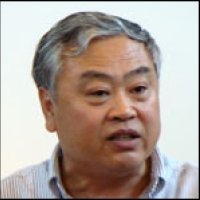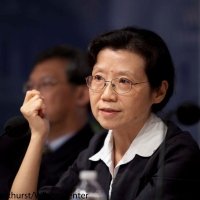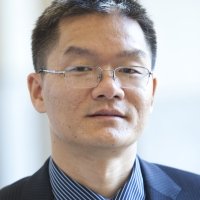China’s Alliances with North Korea and the Soviet Union: A Conversation with China’s Leading Historians
The Wilson Center’s History and Public Policy Program is pleased to host China’s three leading diplomatic historians for a discussion about the history and present day relevance of China’s Cold War-era relations with North Korea and the Soviet Union.
The event, featuring speakers Dr. Zhihua Shen, Dr. Danhui Li, and Dr. Yafeng Xia, will mark the release of two path breaking books: A Misunderstood Friendship: Mao Zedong, Kim Il-sung, and Sino-North Korean Relations, 1949–1976, and Mao and the Sino–Soviet Split, 1959-1973: A New History.
A Misunderstood Friendship, co-authored by Zhihua Shen and Yafeng Xia, is the first book-length history of the China-DPRK relationship to appear in English. Shen and Xia draw on previously untapped primary source materials to offer a unique account of the China-North Korean relationship, uncovering tensions and rivalries that shed new light on the ties between these two Communist East Asian nations. They unravel the twists and turns in high-level diplomacy between China and North Korea from the late 1940s to the death of Mao Zedong in 1976, and reveal that the tensions that currently plague the alliance between the two countries have been present from the very beginning of the relationship.
Mao and the Sino-Soviet Split, co-authored by Danhui Li and Yafeng Xia, synthesizes over 20 years of research on the subject by the authors and offers a comprehensive look at the Sino-Soviet split from 1959, when visible cracks appeared in the Sino-Soviet alliance, to 1973, when China’s foreign policy changed from an “alliance with the Soviet Union to oppose the United States” to “aligning with the United States to oppose the Soviet Union.”
Moderator:
- Dr. Christian Ostermann, Director, History and Public Policy Program
Panelists:
- Professor Zhihua Shen, East China Normal University
- Professor Danhui Li, East China Normal University
- Dr. Yafeng Xia, Long Island University
Commentator:
- Dr. Gregg Brazinsky, George Washington University
Zhihua Shen is the director of the Center for Cold War International History Studies at East China Normal University, Shanghai. The author of a number of major Chinese-language works on Cold War history, he is also the coauthor, with Yafeng Xia, of Mao and the Sino-Soviet Partnership, 1945‒1959: A New History (2015) and coauthor, with Danhui Li, of After Leaning to One Side: China and its Allies in the Cold War (2011).
Danhui Li is Professor of History at Institute for Studies of China’s Neighboring Countries and Regions, East China Normal University, editor-in-chief of two academic journals: Lengzhan guojishi yanjiu (Cold War International History Studies), and Bianjiang yu zhoubian wenti yanjiu (Studies of Borderlands and Neighboring Regions). A leading authority on CCP’s external relations during the Cold War, she has published extensively on Sino-Soviet relations and Sino-Vietnamese relations during the Indochina War (in Chinese, Russian and English). Most recently, she is the co-author of After Leaning to One Side: China and Its Allies in the Cold War (2011).
Yafeng Xia is Professor of History at Long Island University in New York and Senior Research Fellow, Institute for Studies of China’s Neighboring Countries and Regions at East China Normal University in Shanghai. A former Wilson Center fellow and public policy scholar, he is the author of Negotiating with the Enemy: U.S.-China Talks during the Cold War, 1949-72 (2006), and co-author of Mao and the Sino-Soviet Partnership, 1945-1959: A New History, with Zhihua Shen (2015).
Gregg A. Brazinsky is professor of history and international affairs at The George Washington University. He is the author of Winning the Third World: Sino-American Rivalry during the Cold War (Chapel Hill: UNC Press, 2017), and of Nation Building in South Korea: Korean, Americans, and the Making of a Democracy (Chapel Hill: UNC Press, 2007).
Speakers

Director, Center for Cold War International History Studies, East China Normal University (ECNU), Shanghai, China


Professor of History, Long Island University

Professor of History and International Affairs, The George Washington University
Moderator

Hosted By

History and Public Policy Program
A leader in making key foreign policy records accessible and fostering informed scholarship, analysis, and discussion on international affairs, past and present. Read more


Cold War International History Project
The Cold War International History Project supports the full and prompt release of historical materials by governments on all sides of the Cold War. Read more


North Korea International Documentation Project
The North Korea International Documentation Project serves as an informational clearinghouse on North Korea for the scholarly and policymaking communities, disseminating documents on the DPRK from its former communist allies that provide valuable insight into the actions and nature of the North Korean state. Read more


Kissinger Institute on China and the United States
The Kissinger Institute works to ensure that China policy serves American long-term interests and is founded in understanding of historical and cultural factors in bilateral relations and in accurate assessment of the aspirations of China’s government and people. Read more


Hyundai Motor-Korea Foundation Center for Korean History and Public Policy
The Center for Korean History and Public Policy was established in 2015 with the generous support of the Hyundai Motor Company and the Korea Foundation to provide a coherent, long-term platform for improving historical understanding of Korea and informing the public policy debate on the Korean peninsula in the United States and beyond. Read more
